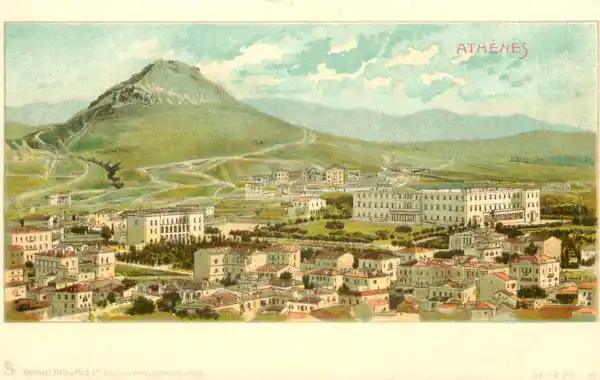18 May 2020
|
More than 1.8 million Greek historical records - searchable in English as well as Greek - have been added to the MyHeritage website.
The collections comprise:
- Greece, electoral rolls (1863-1924)
- Corfu vital records (1841-1932)
- Sparta marriages (1835-1935)
Greek historical records
The Greece Electoral Rolls (1863–1924) consist of 1,006,594 records and provide nationwide coverage of males ages 21 and up who were eligible to vote.
The Corfu Vital Records (1841–1932) consist of 646,807 birth, marriage, and death records that were collected by the civil authorities in Corfu and document the life events of all residents of the island, regardless of their ethnicity or religion.
The Sparta Marriages collection (1835–1935) consists of 179,411 records which include images of the couple’s marriage license and their listing in the marriage register.
Enhanced searching and matching
In Greece, a woman's last name is the genitive form of her father's surname, or when she marries, of her husband's surname. The new Greek collections on MyHeritage have been made gender-agnostic to facilitate enhanced searching and matching.
For example, a search for the Jewish surname “Velleli” in the new collections on MyHeritage will also locate people named “Vellelis”. It is also possible to find these surnames by searching for “Belleli”, because the Greek letter beta is pronounced like the English letter V, but in some countries this distinction has been lost and Greek surnames are sometimes pronounced with the letter B, the way they are written in modern English.
Richly-detailed records
Ross Wilding, chief content officer at MyHeritage, said: “As the cradle of western civilization and a crossroads of continents and cultures, Greece is becoming a gem among MyHeritage’s historical record collections. The records in these collections are rich in detail and have pan-European, Balkan, and Mediterranean significance.
The communities documented were shaped by Greek, Italian, French, and Russian influences, have been home to significant Catholic and Jewish communities, and represent some of the world's most progressive systems of governance. These collections will prove valuable both to novice researchers and experienced genealogists.”








